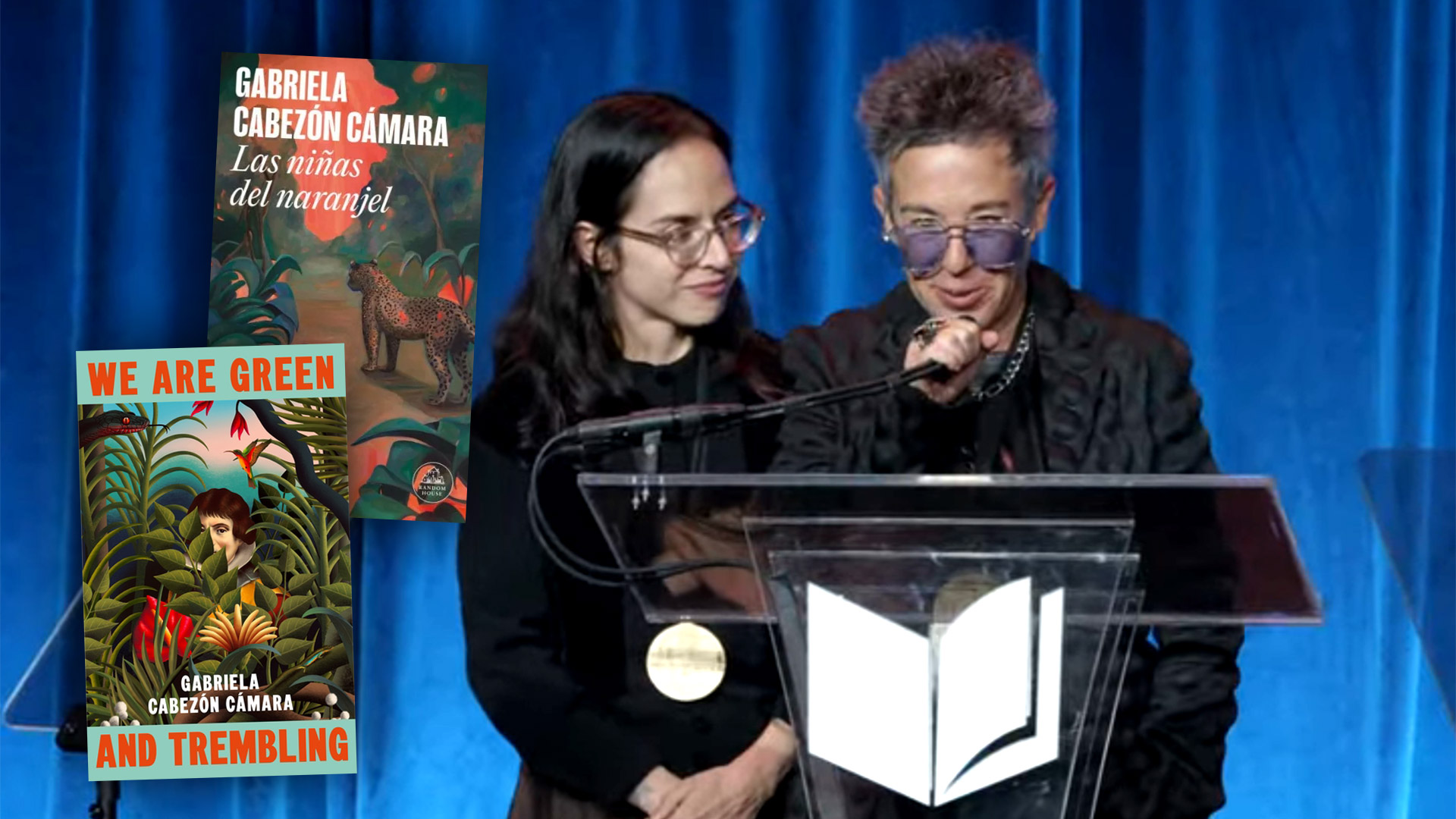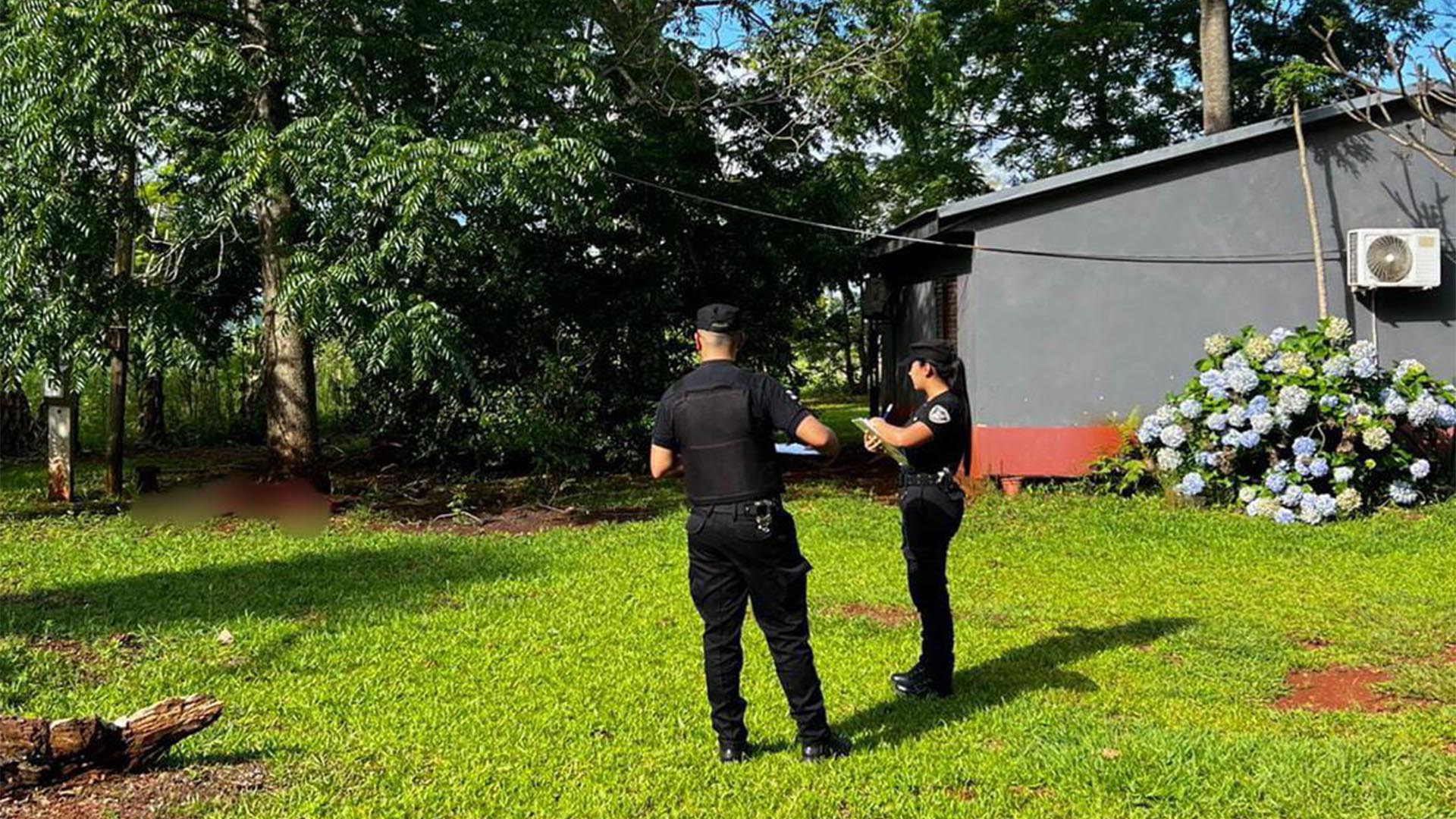20/11/2025
“Hey, che”: así empieza, en español y en inglés, la novela argentina que ganó el Premio Nacional en Estados Unidos

Fuente: telam
“Las niñas del naranjel”, de Gabriela Cabezón Cámara fue distinguida en la categoría de Literatura Traducida. Aquí el arranque, en los dos idiomas
>La noche del miércoles fue pura emoción: en Nueva York se fallaban los Premios Nacionales de literatura y una autora argentina, Gabriela Cabezón Cámara, estaba entre los cinco finalistas para la categoría Literatura Traducida. Su novela, que en castellano se llama Las niñas del naranjel, trata de la conquistas, de una monja española que se descubre varón, se hace militar y se viene a América -es una historia real- y del encuentro con la cultura de este continente a partir de dos nenas guaraníes. Cabezón Cámara tenía competidores fuertes, como la francesa Neige Sinno con su tremendo libro Triste tigre, que cuenta y piensa la historia de cómo su padrastro la violó entre los 6,7 años y los 12. Pero cuando la presentadora leyó el nombre ganador, dijo, en inglés, el título de la novela argentina: We are green and trembling. Abrazos.
Cabezón subió al escenario de la mano de su traductora, Robin Myers, que también es ganadora del National Book Award junto con ella. No tuvo un trabajo fácil: Las niñas del naranjel es un libro de una escritura delicada y cierta invención lingüística.Aquí están los comienzos de ambas versiones. La niña que fue monja le habla a su tía, la madre superiora de cuyo convento huyó.Tía querida: Soy inocente y tan a imagen y semejanza de Dios como cualquiera, como todos, no obstante haber sido grumete, tendero y soldado, más antes —antes— niñita en tu falda. “Hija”, “hijita”, llamábasme y ni aun hoy, creo, ni aun con mis hombros militares ni con mi bigotillo ni con mis callosas manos armadas de espada llamaríasme de modo otro. Tía, te diría si pudiera, ¿vives aún? Yo así lo creo y creo que me esperas para heredarme lo que es tuyo, lo que fue nuestro, ese convento de San Sebastián el Antiguo que mandó a construir tu abuelo, el padre del padre de mi padre, el marqués don Sebastián Erauso y Pérez Errázuriz de Donostia. Dáselo a otra y, te lo ruego, sigue leyéndome. —¿Con quién hablás, vos, che, Yvypo Amboae?
—No, che. Extraña vos. Todo el día reñe’ẽ, reñe’ẽ, hablando vos, solo, che.
—¿Qué dices, Michī?
—Le estoy escribiendo una carta a mi tía. Mirad, ésta es la pluma, ésta la tinta y estas de aquí son las palabras. ¿Queréis que os lea?
—Lejos, en España. Cállate un ratito, Mitãkuña, déjame seguir escribiendo: eso no fue en esta selva...
My beloved aunt,I am as innocent and forged in the image and likeness of God as any other, as every other, though I have been a cabin boy, shopkeeper, and soldier, and before then, long before, a small girl at your skirts. “Daughter,” “little daughter,” so did you call me, and not even now, not even with my martial shoulders and my mustache and my calloused sword-wielding hands, would you think to describe me otherwise. Dear aunt, I would ask you if I could, are you still alive? For I believe you are, and I believe you are waiting to bestow upon me what is yours, what was ours; the convent of Saint Sebastián el Antiguo, whose construction was commanded by your grandfather, the father of the father of my father, the Marquis Don Sebastián Erauso y Pérez Errázuriz de Donostia. Give it to some other girl, and, I beg of you, pray do keep reading these words.Hey, che, who do you speak to, stranger, Yvypo Amboae?”
“You are strange, che. All day talking and talking, reñe’ẽ, reñe’ẽ, reñe’ẽ, talking to yourself.”
“What was that, Michī?”
“I am writing a letter to my aunt. Look, you two, this is a quill, this is ink, and these are words. Would you like to hear them?”
“Far away, in Spain. Be still a while, Mitãkuña, and let me keep writing. Yet that was not in the jungle …”
Fuente: telam
Hey, che, who do you speak to, stranger, Yvypo Amboae?”
“You are strange, che. All day talking and talking, reñe’ẽ, reñe’ẽ, reñe’ẽ, talking to yourself.”
“What was that, Michī?”
“I am writing a letter to my aunt. Look, you two, this is a quill, this is ink, and these are words. Would you like to hear them?”
“Far away, in Spain. Be still a while, Mitãkuña, and let me keep writing. Yet that was not in the jungle …”
Fuente: telam













